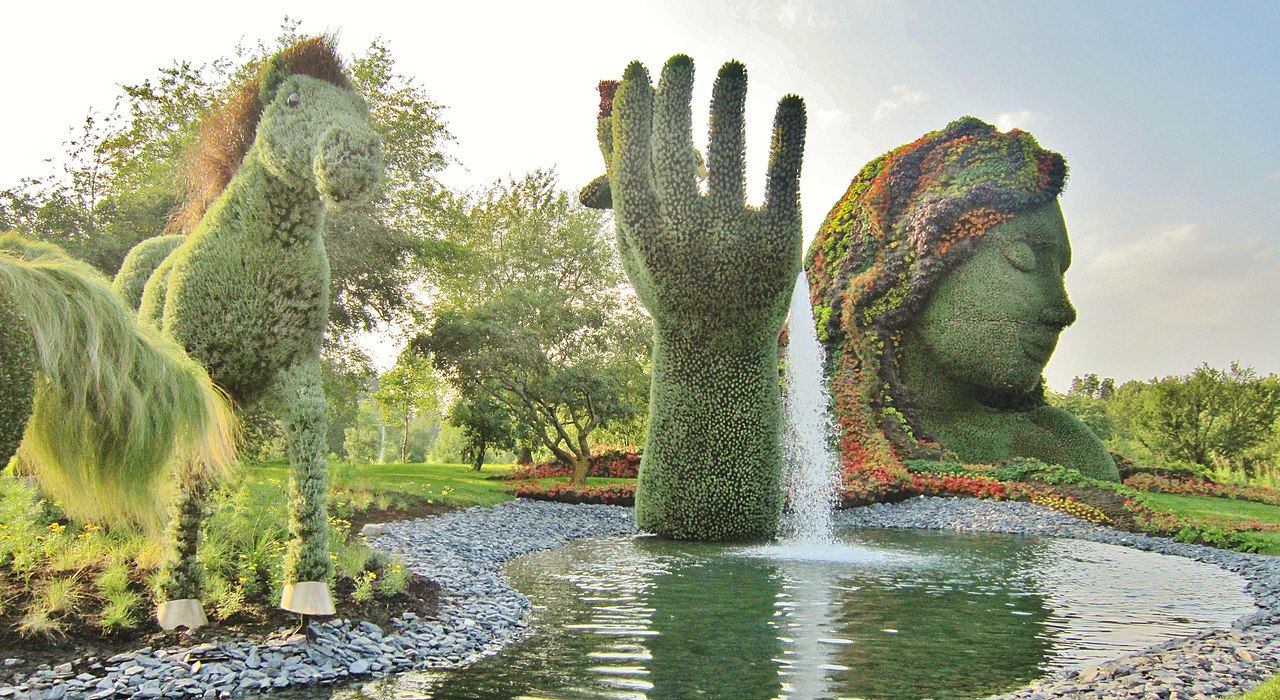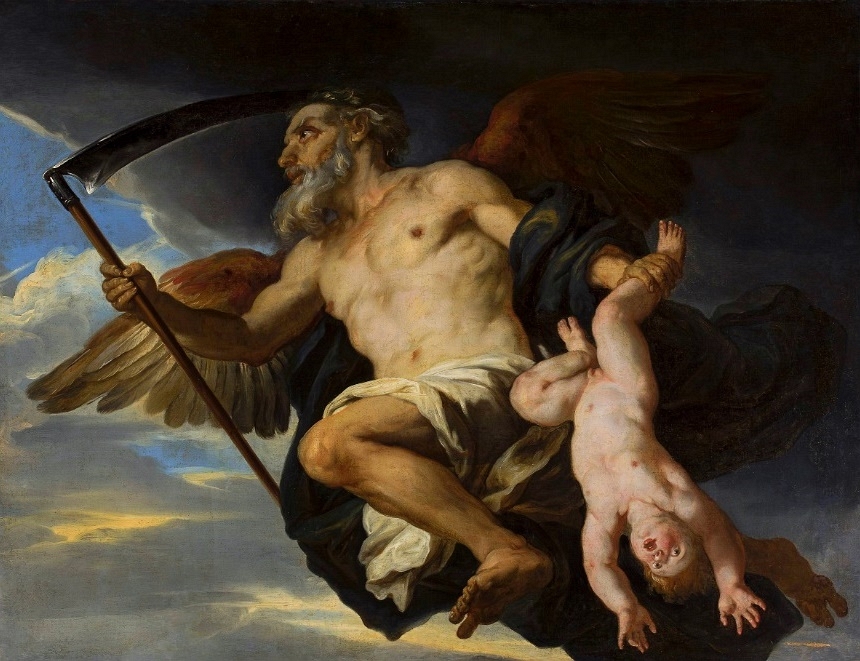Unit 1: Why Study Greek Mythology?

Before You Read
Discuss the following questions with a classmate.
- What stories or explanations have you heard about the earth’s creation?
- In the discussion of #1 with your group or with a classmate, do you notice any similarities in different stories about the earth’s creation?
Vocabulary Building
Find the word in the paragraph given. Use the synonyms and definition to help. (Definitions from Merriam-Webster Learner’s Dictionary.)
- P2: used to describe people who hurt others and do not feel sorry about it (adj) ___________
- P3: a strong feeling of dislike or hatred (n.) ______________________________________________
- P3: a hidden place from which a surprise attack can be made (n.) __________________________
- P4: to oppose a person or group in authority (v.) _________________________________________
- P5: having an unreasonable feeling that people are trying to harm you (n.) _________________
- P5: describing a spoiled or damaged appearance (adj.) ____________________________________
- P6: to invent or plan (something that is difficult or complicated) (v.) _______________________
Part 1: The Creation Story
Adapted from Gods and Heroes by R.E. Francillon $\ccpd$ and material from the Wikipedia article “Titanomachy”, $\ccbysa$
In the beginning, there was nothing but chaos. Darkness covered everything. After many ages, the Sky married the Earth. The sky’s name was Uranus, and, the Earth’s was Terra, or Gaea. They had twelve children – six female and six male. The females were Mnemosyne, the goddess of memory, Tethys, Theia, Phoebe, Rhea, and Themis. The males were Oceanus, the Titan of the sea, Hyperion, Coeus, Cronos, Crius, and Iapetus. They were huge and gray and called “Titans.”
Terra, their mother Earth, was very good and kind; but their father, Uranus, was very cruel. Gaea gave birth to three brothers called Cyclopes, who each had one eye, and then to the Hecatonchires, another set of three brothers who had one hundred arms and fifty heads. Uranus hated how ugly they were and shut the six brothers underground so that he might never see them again.
Uranus drew the animosity of Gaea when he imprisoned her children the Hecatonchires and Cyclopes in Tartarus. Gaea created a great scythe with the iron she had in her veins — (you know that iron comes from what are called the Veins of the Earth) and adamantine, the strongest, unbreakable rock, and gathered together Cronos and his brothers to convince them to castrate Uranus so that he could never have any more children to hate. Only Cronos was willing to do the deed, so Gaea gave him the scythe and placed him in ambush.
When Uranus met with Gaea, Cronos attacked Uranus, and, with the scythe, cut off his genitals, casting them into the sea. In doing so, Cronos became the King of the Titans. But Uranus cursed him, promising Cronos’s own children would rebel against his rule, just as Cronos had rebelled against his own father, and that he would remain in the sky to watch it all happen to him. Uranus’ blood that had spilled upon the earth gave rise to the Furies. From the blood that fell into the sea, Aphrodite was born.

Cronos instantly let all his brothers out from their underground prison. They were very grateful to him until suddenly Cronos changed his mind. Paranoid and fearing the end of his rule, he now turned into the terrible king his father Uranus had been, swallowing each of his children whole as they were born from his wife Rhea and returning his disfigured brothers underground. Rhea was very unhappy and miserable: having her children eaten was worse, she thought, than if he had only shut them underground.
But she thought and thought, and at last she devised a plan. When her next child was born, she hid it away, and when Cronos asked for it to eat it, she gave him a big stone instead of the baby. Cronos must have had good teeth, for he ate it up, and only thought that the new baby’s bones were surprisingly hard. The trick seemed to work.

The other Titans did not fear Uranus’ threat and had many famous children. Iapetus had three children: Epimetheus, the god of afterthought, Prometheus, the god of forethought, and Atlas, the carrier of the universe–all of whom will be important in later stories. Oceanus married Tethys and gave birth to all the rivers in the world as well as thousands of water nymphs. Hyperion, the Titan of light, had three important children: Helios, the Sun, Selene, the moon, and Eos, the goddess of dawn. Mnemosyne became the mother of the nine Muses, and Themis, the Titan of justice, gave birth to the three Fates. However, the most famous children are those of Cronos and Rhea.
CEFR Level: CEF Level B2
Organizing Ideas: Fill in the Chart
Many characters were described in this introduction to mythology. Let’s organize the characters and who they are in the following chart. Fill in the missing information.
| Greek name | Latin name | God / goddess of… |
| Gaea | Terra | |
| Helios | X | |
| Eos | Aurora | |
| Uranus | X | |
| the Titans | the Gigantes | |
| Rhea | X | |
| Saturn | ||
| Mnemosyne | X |
Comprehension Questions
Answer the questions below according to the reading using your own words. Make a note of where you found the answer in your reading.
- According to this story, who is “mother earth”?
- Who were the Titans?
- What happened that caused Uranus to hate his children?
- What did he do to the children that he hated?
- How did Cronos defeat his father?
- Why did Cronos start eating his own children?
- How did Rhea protect one of her babies?
Did you know?
In Greek, “ch” is pronounced like a “k” sound. That means for many English words that come from Greek, the “ch” is also pronounced like a “k”. Examples are choir, chorus, chronological, architecture, ache, echo, and chemistry.
Vocabulary from the Stories
Many words and phrases in English come from the characters in Greek mythology. Fill in the following blanks with their corresponding god or goddess and definition. Discuss with a partner how the vocabulary is related to the god or goddess that the word comes from.
| Related Greek / Roman god / other |
English vocabulary and definition |
Relationship between vocabulary and story |
| Gaea | “mother earth” | |
| X | prefix geo- | |
| terrestrial | ||
| the Gigantes | gigantic | |
| X | giant | |
| titanic | ||
| Adamantine | adamant (adj) | |
| X | diamond (n) | |
| Helios | helio- (prefix) | |
| heliocentric | ||
| Eos | east |
Critical Thinking Questions
Below are critical thinking questions. “Critical thinking” means to think more deeply about a topic and connect it with old and new knowledge that you have. Often teachers will ask you for your opinion. These types of questions do not have a right or wrong answer, but you should support your answer with information from the reading. Discuss these questions with your classmates to see what their point of view is.
- In your culture, is there a similar figure to “mother earth”? Explain.
- Which of these characters is the most interesting to you? Explain why.
- Which of these characters do you dislike the most, and why?
- What event in Greek mythology are these two cartoons about?
